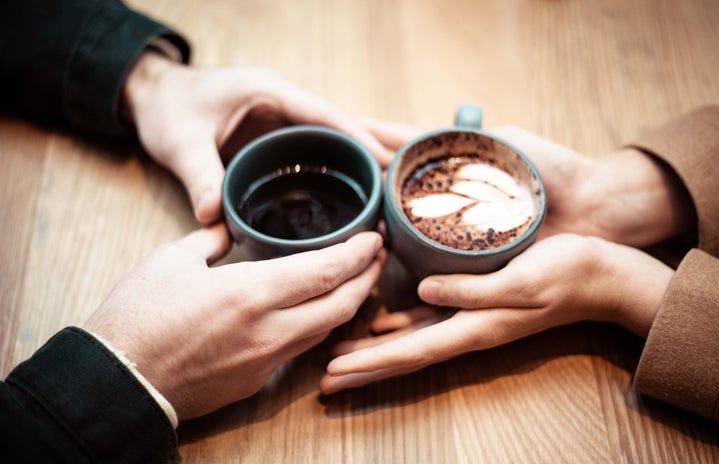Let’s be honest, your caffeine addiction probably started as soon as you hit college, or maybe even before. Late nights full of term papers, studying for finals, and cram sessions that are fueled by your preference of a few dozen cups of coffee or energy drinks. It was never just one because the energy it gave you only lasted so long. This caffeine addiction will continue to grow throughout your life; because once you start it’s hard to stop. Just one energy drink or cup of coffee doesn’t do the trick anymore and that’s how your dependence increases and multiplies. The average caffeine consumption by Americans continues to rise every year, especially with the rising popularity of chains such as Starbucks, Dunkin Donuts, and Java Joe.
But what’s so bad about caffeine? It may be a drug, but it’s legal and it’s very rare to find anyone now days who never consumes some source of caffeine in their daily routine. What people don’t know or are neglecting to realize is just how dangerous too much caffeine can really be. College Health Professor and PhD Julia Buchanan explains how it can affect you by consuming it in excess. “Caffeine can cause negative effects in the body including dehydration, a reduction in insulin sensitivity, increases in blood pressure, chronic headaches, and the possibility for central nervous system, cardiovascular, gastrointestinal and renal dysfunction,” says Buchanan. Numerous trips to Starbucks or the gas station for your daily dose every morning, afternoon or night are becoming normalized and almost expected in our society. “Coffee breaks” are really just breaks to amp yourself up on caffeine to finish your day, which shouldn’t be a solution for tiredness. It’s not mentally or physically healthy for anyone.
If you’re interested in stepping into a healthier lifestyle and you want to begin to dwindle your dependence on lattes, here are five tips:
- Identify Your Addiction
Quitting or lessening your caffeine intake won’t be easy, but the step to take is to realize your addiction. If you don’t stop at Dunkin every morning for a large iced coffee, do you get a headache or feel anxious? Take some time out of your day and see how much caffeine you consume on a regular basis. This will make it easier to gently taper it off. Caffeine can become so addicting because it resembles a natural molecule in our body called adenosine that makes us feel tired. Caffeine latches onto these molecules to cause the opposite effect. “When people consume caffeine on a daily basis, the brain grows more adenosine receptors to compensate, which is why it takes more caffeine to get the same effect. Over time, this leads to addiction,” says Buchanan. Basically the more you consume the harder your addiction will be to crack, so knowing how much your body is taking in will be the biggest step to your healthier lifestyle.
- Don’t Quit Cold Turkey
Straight up cutting out caffeine from your diet will not only be difficult, but almost completely ineffective. “Abruptly stopping caffeine addiction can cause withdrawal effects, but the good news is, they’re generally short-lived,” Buchanan said. One of the biggest and most common withdrawal symptoms is a headache, which can really set you back in your day. It’s never a good idea to stop any addiction by completely cutting it off because your body will not be use to it. Start off easy by just consuming smaller quantities day by day or week by week.
- Drink Lots of Water
Although it may seem like people think water is the solution to anything and everything…drinking water really is a great way to dwindle caffeine addictions. Drinking a glass of water in the morning can make you feel more awake and while also positively affecting your body. When you’re dehydrated, your body is fatigued and which affects the flow of oxygen to your brain, causing you to be more tired and less alert. Being dehydrated also increases your stress hormones and being stressed and over caffeinated can go hand in hand. So the next time you start to feel your motivation swaying and your eyelids drooping, try hitting the water fountain. Staying hydrated ultimately means staying energized.
- Exercise
OK, who wants to give up their morning cup of coffee for a run? Don’t worry, it doesn’t have to be that extreme, but this is a big one. Adding even the smallest amount of exercise into your daily routine can boost your metabolism and make you feel more motivated and awake. A quick walk or small workout can stimulate more blood flow to the brain, ultimately making you feel more alert. “If you’re feeling a slump mid-day, a quick walk or workout can do the trick,” says Buchanan. Some simple solutions are taking the stairs instead of the elevator, taking a quick walk in the morning, or fitting a small workout into your nightly routine by doing some exercises during your favorite TV show. Not only can exercise be a solution for feeling more energized in your day, but also it’s going to be great for your body in general; who doesn’t want to feel and look healthier?
- Look for Alternatives
“Ingesting caffeine and other stimulants can cause a feeling of being awake, but often times these feelings are short-lived,” says Buchanan, “You want to look for something that has longer-lasting, sustainable effects.” The best alternative to caffeine is going to be different types of tea. Tea provides natural caffeine that can give you the same stimulation without all the side effects. The best kind of tea that has absolutely no caffeine is going to be mint tea. “Mint wakes you up mentally and can really help you stay focused. It won’t give you the body high of caffeine but can increase mental alertness,” Teavanna employee, Maddie Williams says. Green and white teas are going to be the next best option; they will wake you up while also giving you natural antioxidants and immune boosting qualities. The other great element about tea is you gradually come down from its effects, unlike regular caffeine that forces you to crash quickly after you consume it.
Now I’m not suggesting we boycott all coffee companies or for you to give up your coffee shop dates. The good news is your favorite spots like Starbucks and Dunkin Donuts have tea and decaffeinated options on the menu as well. Although the occasional use of caffeine isn’t going to kill you, the problem starts when the occasional drink turns into a craving and then that craving turns into do or die. No one wants to be a caffeine zombie. By dropping a caffeine addiction, you will find yourself being less stressed and anxious while becoming happier but most importantly healthier.


